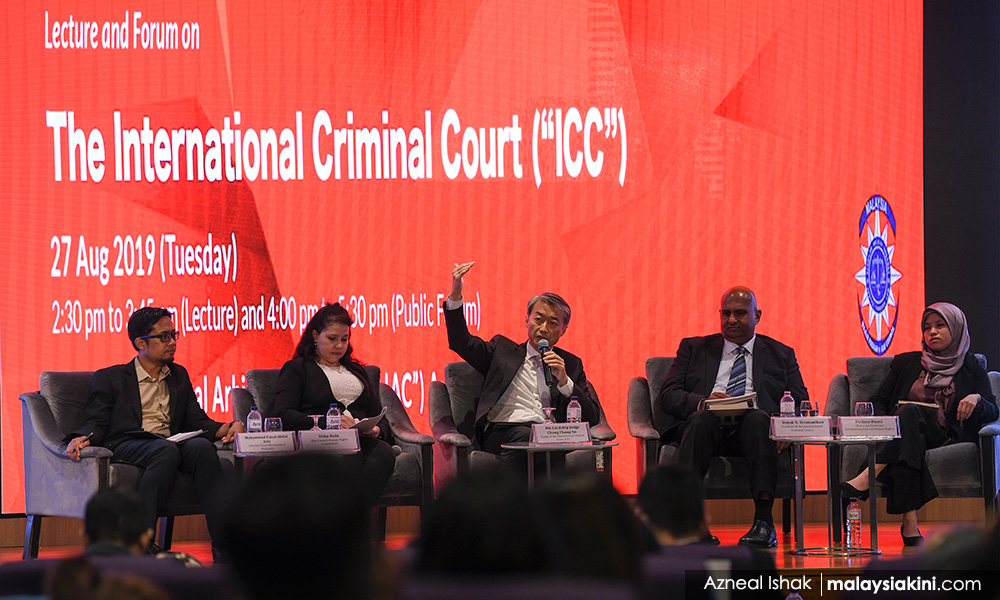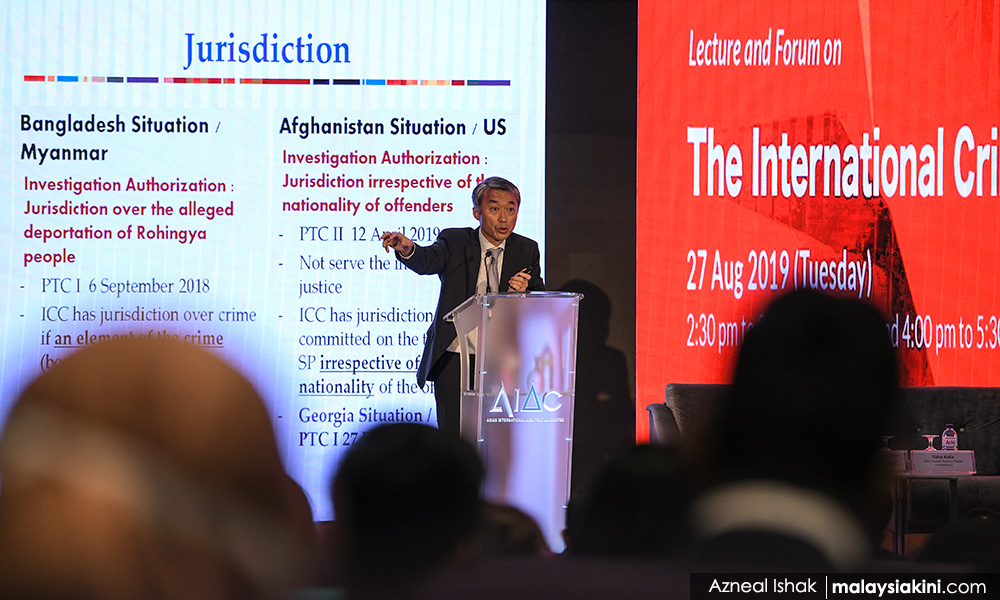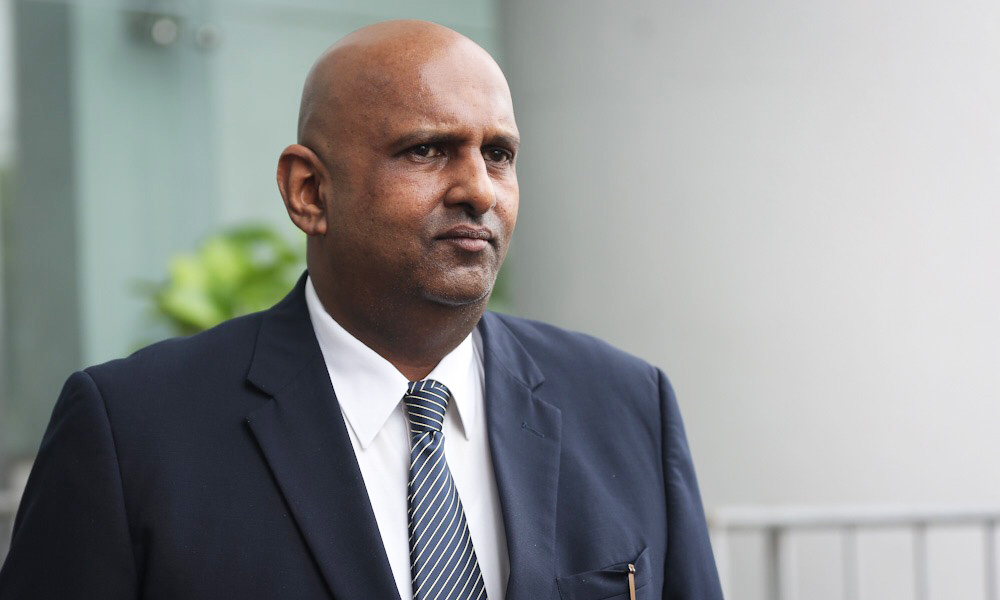
The Coalition for the International Criminal Court (ICC) has been relaunched in a bid to urge Putrajaya to consider signing the UN treaty again.
In conjunction with today’s event, the Malaysian Bar - which is part of the coalition - organised a public lecture by ICC judge Chung Chang-ho and a forum on why Malaysia ought to accede to the Rome Statute, which establishes the ICC.
In his opening address, Bar vice-president Roger Chan thanked Chung for travelling from his workplace in The Hague, Netherlands to shed light on the workings of the court.
“There is (a) huge misunderstanding about the Rome Statute of the ICC in the Asian region. Lectures such as these by Chung will assist in the understanding (of the court) and allay the misconceptions about the ICC,” he said at the Asian International Arbitration Centre in Kuala Lumpur.
Among those in attendance were Chief Justice Tengku Maimun Tuan Mat, Suhakam commissioner Lok Yim Pheng, Bar president Abdul Fareed Abdul Gafoor, members of the Bar as well as representatives from the Attorney General’s Chambers and civil society organisations.
Federal Court judge Idrus Harun, Court of Appeal judge Hasnah Mohammed Hashim and High Court judge Mohd Firuz Jaffril were also seen in the audience.
South Korean Chung was elected to the ICC in 2015 and presides over trial proceedings.
In his presentation this afternoon, he explained in detail how only the most heinous cases of crimes against humanity, genocide, war crimes and crimes of aggression could be brought before the court.

Chung (photo) stressed that the limited jurisdiction of the ICC, like how it adhered strictly to the principle of “complementarity”, would never override a country’s national courts if they functioned well.
“We cannot just intervene anytime we want.
“We must wait until a state party (signatory country) sends a case to us. Then we can start the investigation or trial on behalf of the state concerned,” he said.
Setting the record straight
Malaysia withdrew from the Rome Statute in April this year despite having signed it just a month before.
Prime Minister Dr Mahathir Mohamad said Putrajaya made the decision after an unidentified party had attempted to pit the royalty against the government over the statute’s ratification.
Among the most prominent critics of the ICC was Johor ruler Sultan Ibrahim Sultan Iskandar, who said ratifying it would violate the Federal Constitution as it would affect the monarch, Malay rights, and the sanctity of Islam.
The government repeatedly denied that signing the statute would affect the country adversely.

During today’s forum, criminal lawyer and ICC counsel N Sivananthan (photo) contended that constitutional monarchs, like those in Malaysia, had little risk of prosecution by the ICC.
Constitutional monarchies like Cambodia, Japan, Jordan and the United Kingdom are signatories of the Rome Statute.
“The Rome Statute has a limited jurisdiction covering only the most severe crimes. Malay rights are unaffected by the accession or ratification of the statute as it does not fall within its jurisdiction [...]
“Likewise, laws against non-heterosexual persons is not a subject matter of the Rome Statute. The Rome Statute is not at all incompatible with Islam,” Sivananthan said in response to concerns.
Malaysia must walk the talk
Also on the panel were Malaysian Centre for Constitutionalism and Human Rights chief human rights strategist Firdaus Husni and Muslim Youth Movement secretary-general Muhammad Faisal Abdul Aziz.
Firdaus opined that Malaysia needed to sign the statute or risk being seen as hypocritical, especially when it had taken bold political positions on the persecution of the Rohingya and the Uyghur as well as in the Israel-Palestine, Iraqi and Afghan conflicts.
“When you learn about all the U-turns we are making, all of our moral credibility and moral standing when making those statements just crumbles [...] that reflects badly on us,” she said.
Moving forward, Faisal urged Putrajaya to hold extensive consultations, especially with the Conference of Rulers, before signing the Rome Statute.
“So long as the Conference of Rulers is consulted widely and also in a proper way, at least (this) can alleviate certain concerns from the general public,” he said during the question and answer session. - Mkini


No comments:
Post a Comment
Note: Only a member of this blog may post a comment.